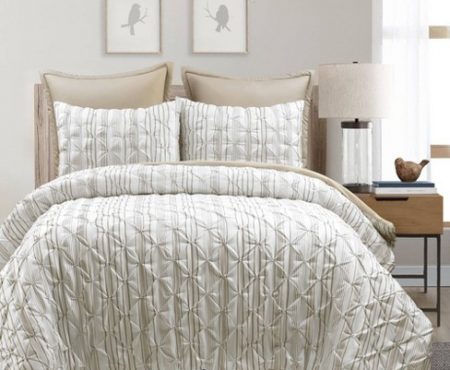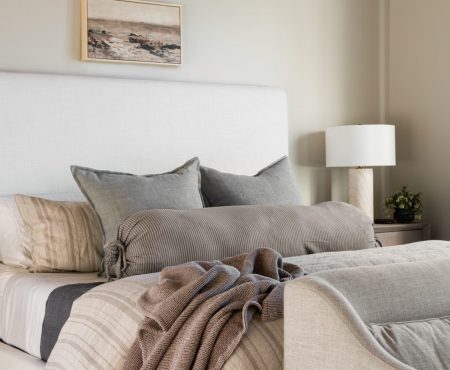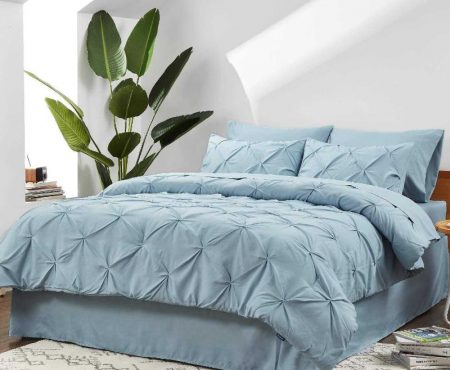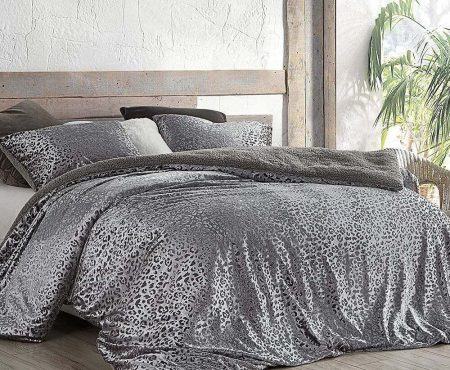Sleep is a vital aspect of our overall well-being, and the quality of our sleep is influenced by a multitude of factors. One often overlooked contributor to a good night’s sleep is the quality of our bedding. From the type of fabric to the thread count, bedding plays a significant role in creating a comfortable and conducive sleep environment. In this article, we delve into the science of a good night’s sleep and explore how the choice of quality bedding can have a profound impact on the quality of your rest.
Temperature Regulation and Breathability
One of the fundamental aspects of quality bedding is its ability to regulate body temperature and promote breathability. Different fabrics possess varying levels of thermal conductivity, which can affect how well they manage temperature during sleep. Natural fabrics like cotton and linen are known for their breathability, allowing air to circulate and moisture to evaporate, thus preventing overheating and night sweats. Bedding with moisture-wicking properties helps maintain a comfortable and dry sleep environment, essential for uninterrupted rest.
Thread Count and Comfort
Thread count refers to the number of threads woven into a square inch of fabric. While a higher thread count is often associated with better quality, it’s essential to strike a balance between thread count and the type of fabric. A higher thread count in conjunction with premium materials such as Egyptian cotton or sateen can contribute to a smoother and softer feel. However, excessively high thread counts in lower-quality fabrics may lead to reduced breathability and a less comfortable sleep experience.
Impact on Allergies and Sensitivities
The quality of bedding can have a significant impact on individuals with allergies or sensitivities. Bedding made from hypoallergenic materials, such as bamboo or certain synthetic fabrics, can help reduce the accumulation of allergens like dust mites, pet dander, and pollen. Additionally, using protective covers for pillows and mattresses can create a barrier against allergens, creating a healthier sleep environment for those prone to allergies or respiratory issues.
Comfort and Sleep Satisfaction
The tactile sensation of bedding against the skin plays a crucial role in sleep satisfaction. Quality bedding with a soft and smooth texture can enhance comfort and contribute to a sense of well-being. The tactile experience of slipping into bed and feeling the luxurious touch of premium sheets or a cozy blanket can promote relaxation and signal to the body that it’s time to unwind and rest.
Creating a Sleep-Inducing Atmosphere
The environment in which we sleep greatly influences our ability to fall asleep and stay asleep. Quality bedding can contribute to creating a sleep-inducing atmosphere that supports restfulness. The visual appeal of well-coordinated bedding ensembles can evoke a sense of calm and tranquility, promoting relaxation before sleep. When you feel aesthetically pleased with your bedding, you’re more likely to approach bedtime with a positive mindset, facilitating the transition into sleep.
Promoting Sleep Hygiene
Sleep hygiene refers to the practices and habits that contribute to healthy sleep patterns. Quality bedding plays a role in promoting good sleep hygiene by creating a comfortable and inviting sleep environment. The tactile and sensory experience of slipping into a well-made bed with quality sheets and blankets can signal to the brain that it’s time to wind down and prepare for sleep. Establishing a consistent bedtime routine that includes settling into a comfortable and inviting bed can improve sleep onset and sleep continuity.
Enhancing Sleep Duration and Quality
The combination of temperature regulation, comfort, and sensory experience that quality bedding provides can enhance both the duration and quality of sleep. A sleep environment that is conducive to relaxation and comfort reduces the likelihood of disturbances during the night. When you’re not awakened by discomfort or temperature fluctuations, you’re more likely to experience uninterrupted and restorative sleep cycles, leading to improved overall sleep quality.
Investing in Long-Term Sleep Health
Investing in quality bedding is an investment in your long-term sleep health. While high-quality bedding may come with a higher upfront cost, the benefits it offers in terms of sleep quality and overall well-being make it a worthwhile expenditure. Quality bedding tends to be more durable and resilient, retaining its softness, color, and texture over time. By prioritizing the quality of your bedding, you’re prioritizing your sleep health and setting the stage for restful nights and rejuvenated mornings.
In conclusion, the science of a good night’s sleep highlights the significant role that quality bedding plays in promoting sleep health and overall well-being. From temperature regulation and breathability to comfort and sensory experience, the characteristics of bedding can influence various aspects of sleep. By selecting bedding that aligns with your comfort preferences and sleep needs, you can create a sleep environment that supports relaxation, promotes restfulness, and contributes to a more restorative sleep experience. Remember that quality bedding is an investment in yourself, a commitment to optimizing your sleep and enhancing your overall quality of life.












